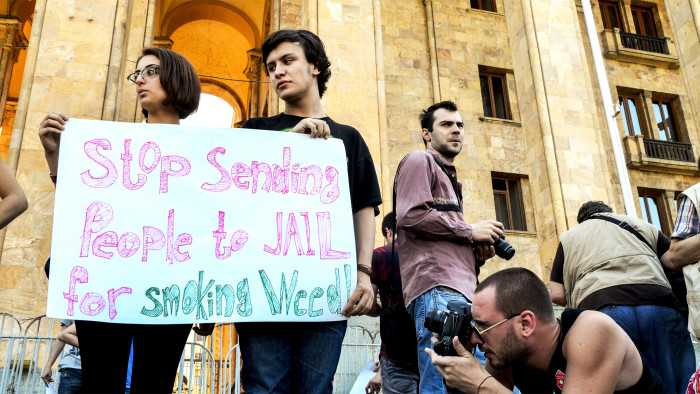Harm reduction: time to end the war on drugs?

Simply sign up to the Life & Arts myFT Digest -- delivered directly to your inbox.
Two years ago 24,000 people were in jail in the former Soviet republic of Georgia. Today the figure is 10,000. The reduction – achieved through an amnesty and an end to jail sentences for personal drug possession and other minor offences – is one of the fastest falls in prison population on record, apart from mass releases in war or revolution.
Archil Talakvadze, Georgia’s Deputy Minister of Corrections, speaks of the change of policy as a striking example – still little known abroad – of an approach to drug abuse based on scientific evidence and what’s best for public health rather than harsh criminal justice.
“We had a repressive approach that led to one of the world’s highest incarceration rates, prison overcrowding and infections running out of control,” says Talakvadze, who comes from a health background. “Now we think about ‘harm reduction’ to balance law enforcement.”
The new policy has not led to an increase in crime as some feared, he says. But it has had a very positive effect on health, including a fall in the annual prison death rate from 55 per 10,000 prisoners to 25. It has also helped to tackle the spread of hepatitis C through infected drug-injecting needles.
Other authorities on drug policy echo Talakvadze’s appeal for an end to the war on drugs. “This is where the gap between what science tells us we should do and what actually happens on the ground is greatest,” says Michel Kazatchkine, the UN Secretary-General’s Special Envoy on HIV/Aids in eastern Europe and Central Asia.
In March 2016 the UN General Assembly will hold a special session on drugs, the first for 20 years – and Kazatchkine predicts “big political fights”. “The Secretary-General has called for a very open debate,” he says. “I’m arguing for the prioritisation of health and an end to criminalisation when people have drugs with no intention to sell.”
In the US, where the movement to decriminalise cannabis is growing, the National Institute on Drug Abuse (Nida) is gathering evidence about its effects. “We’re investing in research into what’s happening in Colorado and Washington [state],” says deputy director Wilson Compton.
American prisons, too, are full of people held for drug offences. “Addiction is a public health crisis,” Compton says. “Exceptionally high rates of incarceration for drug-related offences have not been implemented with corresponding increases in addiction treatment.”
Photograph: Getty
Comments